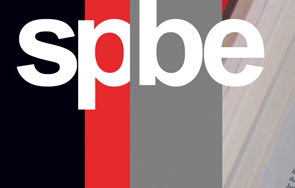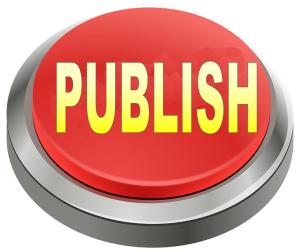 What a difference a year makes. New York’s Self-Publishing Book Expo, now entering its sixth year, has followed alongside the evolution of indie publishing, more or less. It’s a unique show designed to help self-published authors network with service providers and learn how to navigate the marketplace to publish and promote their books more effectively. But the most recent show, from the exhibitors to the presenters to the audience, had some huge differences—some good, and some that made me want to punch a wall. Continue reading “Self-Publishing Book Expo 2014 Wrap-Up”
What a difference a year makes. New York’s Self-Publishing Book Expo, now entering its sixth year, has followed alongside the evolution of indie publishing, more or less. It’s a unique show designed to help self-published authors network with service providers and learn how to navigate the marketplace to publish and promote their books more effectively. But the most recent show, from the exhibitors to the presenters to the audience, had some huge differences—some good, and some that made me want to punch a wall. Continue reading “Self-Publishing Book Expo 2014 Wrap-Up”
Tag: Lulu
Choices in Publishing: Paperbacks
 For the past two weeks, I’ve been writing about choices for indies who want to publish their work as an eBook. But nothing beats the rush of holding in your hot little hand an actual, physical, dead-tree book with your name on the cover. Particularly if you’re planning to do book signings or any other type of personal appearance, a paperback edition of your book is essential.
For the past two weeks, I’ve been writing about choices for indies who want to publish their work as an eBook. But nothing beats the rush of holding in your hot little hand an actual, physical, dead-tree book with your name on the cover. Particularly if you’re planning to do book signings or any other type of personal appearance, a paperback edition of your book is essential.
Authors who want to create a paperback edition have several publishing options. But first and foremost: DO NOT DO BUSINESS WITH A VANITY PUBLISHER. Here at Indies Unlimited, we have had our fill of stories about these vultures, which sometimes also call themselves hybrid publishers. They prey on newbie authors with their slick websites. They say they will take you under their wing and do everything you don’t know how to do, from editing your book to promoting it. It sounds terrific. But their editing work is often substandard, their promotional efforts are slim to nonexistent, and their contracts are extremely difficult to get out of. And they will charge you hundreds, thousands, or even tens of thousands of dollars for the privilege of doing this to you. The saddest part is that in today’s publishing climate, you can do everything yourself, for free or cheap. I don’t know about you, but free and cheap are my two favorite prices. This article will show you how to spot a scam.
The following three print-on-demand services are the ONLY ones we can recommend. And even then, there’s a caveat. Continue reading “Choices in Publishing: Paperbacks”
Indie News Beat: Can Helix Reviews Help You Produce a Better Book?
 Can a computer program help you produce a better book?
Can a computer program help you produce a better book?
I logged on to my paperback printer, Lulu, the other day to find a new button next to each of my titles, labelled ‘Buy a Helix review’. Thinking that this must be a variation on the notorious paid reviews, I clicked to find out how much money my printer wanted to not read my books and still give them five stars. However, it turns out that a Helix review is something different. It’s a computer program which reads your book and gives you a report, so that you can compare your book against “more than 100,000 bestsellers catalogued as part of The Book Genome Project.”
My curiosity and confusion increased in equal measure, mainly thanks to the marketing guff Lulu offered to explain this. According to the site, a Helix report contains metrics about your book under five headings: Continue reading “Indie News Beat: Can Helix Reviews Help You Produce a Better Book?”
Are Hardcover Books on Life Support?
 One of the reasons writers give for wanting a real, live, honest-to-goodness contract with a traditional publisher is that they want to see their work in hardcover. Paperbacks are all very fine, but there’s nothing like the heft of a hardcover to make you feel like you’ve arrived. Or so I hear.
One of the reasons writers give for wanting a real, live, honest-to-goodness contract with a traditional publisher is that they want to see their work in hardcover. Paperbacks are all very fine, but there’s nothing like the heft of a hardcover to make you feel like you’ve arrived. Or so I hear.
Anyway, the point is that it used to be a given: if you got an agent and signed on with one of the Big Five, you were guaranteed that your book would be in print in some form or fashion, usually hardcover followed by paperback. But Publishers Weekly reported this week that as the number of brick-and-mortar bookstores dwindle, and as e-books become more popular, agents are beginning to see this change – to the point that eventually, a dead-tree edition may not be guaranteed. Continue reading “Are Hardcover Books on Life Support?”
